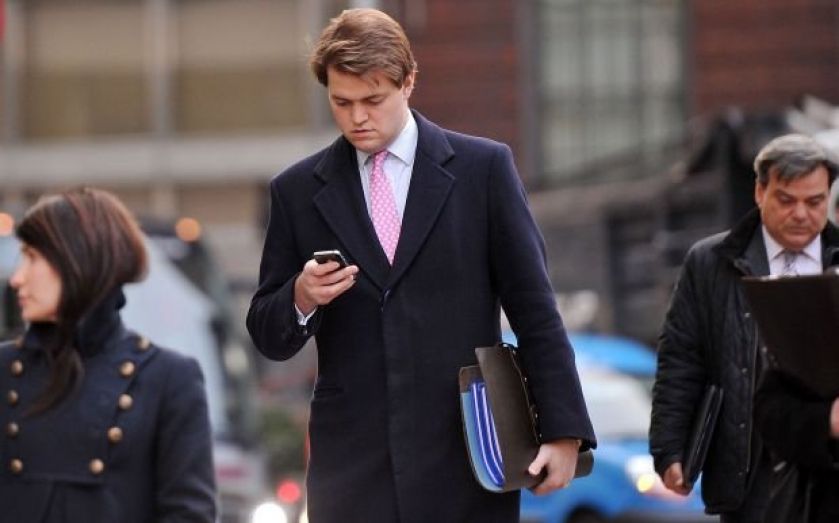Mobile phones in meetings and sneaky BCCs: Do you commit these six business faux pas, as compiled by Debrett’s?

Even the most experienced worker knows the office can be a minefield of potential social faux pas – from that moment you realise that bitchy email went to your boss by mistake, to who's up next for the tea round.
Luckily, manners guide Debrett's has compiled a guide to six of the worst office faux pas, based on the most frequent dilemmas presented to it by members of the public.
1. Checking your smartphone during meetings
According to Debrett’s, it is bad manners and disrespectful towards colleagues and clients to check you mobile or smartphone during meetings. If you are expecting an important call, tell your companions before the meeting begins and, when the call comes through, leave the room to answer it.
2. Emoticons and SHOUTY CAPITALS
While email is standard for business communication, it is important to consider other methods. In a world of instant digital communication, a written letter will always make an impact and can be sent, for example, to say thank you for corporate hospitality, after an interview or for congratulating someone on a significant achievement. Text messages are the most casual method of communication and should only be used if you are familiar with the recipient; avoid using emoticons and remember that capital letters can look aggressive.
3. Replacing face-to-face networking with social media
While social media can be a strong networking tool when used appropriately, be careful to ensure that you do not mix your professional profile with your personal one. Remember, too, that virtual networking should enhance face-to-face networking, rather than replace it.4. Air-kissing instead of shaking hands
Kissing is not appropriate in many professional situations. On the whole it should only be used among friends, but not on first meeting. An air kiss, without contact, may seem rude or impersonal, so very slight contact is best but no sound effects are needed.5. Vaping in the office
E-cigarettes should never be used in a work environment. "Vaping" shows that you’re not focused on your work and may also be a distraction to your colleagues.6. BCCing
Debrett’s receive a high level of enquiries on best business practice. The most commonly asked question is whether it is ever right to blind copy (bcc) someone into an email. According to Debrett’s, blind copying should be used discerningly as it is deceptive to the primary recipient. Instead, the email should be forwarded on to the third party, with a short note explaining any confidentiality, after its distribution.